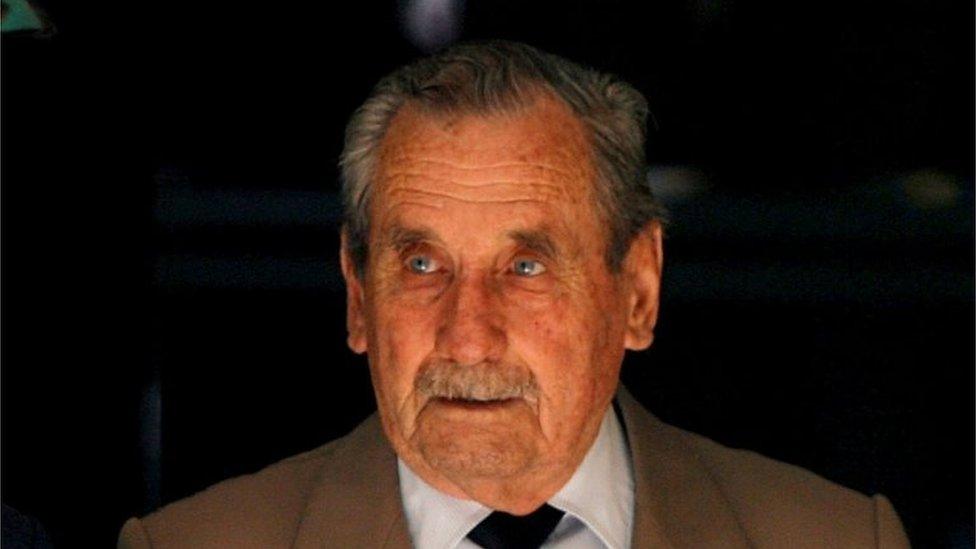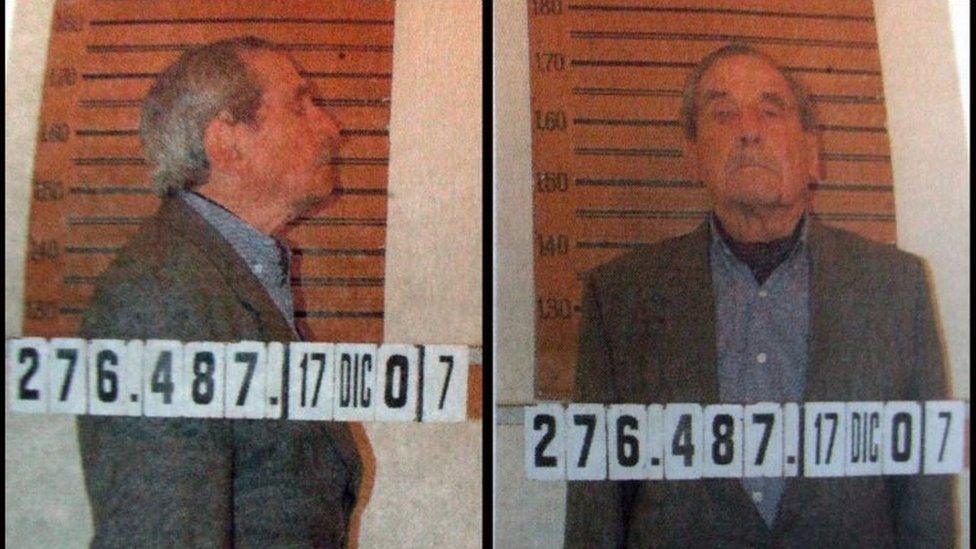Uruguay ex-military ruler Gregorio Alvarez dies aged 91
- Published

Gregorio Alvarez ruled for four years between 1981 and 1985
Uruguay's former military ruler Gregorio Alvarez has died, aged 91.
Officials said Alvarez, who ruled Uruguay from 1981 to 1985, had died of heart failure in a Montevideo prison where he was serving a 25-year sentence for murder and human rights violations.
Hundreds of people disappeared during the military rule that ended in 1985.
Alvarez, also known as "El Goyo", was arrested in 2007 on charges of kidnapping political activists living in exile in Argentina.
Meteoric rise

He was arrested in 2007 over the forced disappearance of 37 Uruguayans
A court in Montevideo found him guilty in 2009 of 37 homicides during his time as head of the army in the 1970s and later as de facto president.
Alvarez, who came from a military family, had a meteoric rise in Uruguay's armed forces.
His brother, also a general, was killed in 1972 by the Tupamaros guerrilla group, an event which many said shaped his political outlook and hard-line stance.
He was a key figure in the 1973 coup d'etat, when President Juan Maria Bordaberry dissolved Congress to rule Uruguay with the support of the military.
Alvarez led the group of military officers who stormed the legislative palace to take control.
Side-lined
In 1981, he was named president by the ruling council. Repression during his time in office was severe, prompting protests in 1984.
With support for his rule dwindling and protests mounting, military and political leaders agreed to usher in a return to constitutional government.
Alvarez, increasingly isolated, did not take part in the negotiations.
Following the democratic election of Julio Maria Sanguinetti and just 15 days before Alvarez's rule was set to end, he resigned.
He continued to live in Montevideo shielded by a 1986 law which required judges to consult the executive before trying cases related to alleged crimes committed under military rule.
But following complaints from the parents of dissidents who had disappeared under military rule, Alvarez was arrested on 17 December 2007.
In 2009, Alvarez was sentenced to 25 years in prison for aggravated murder in 37 cases involving Uruguayan dissidents who had fled to Argentina.
They disappeared after being forcibly returned from Argentina under Operation Condor, a conspiracy between South American military rulers in the 1970s and 1980s to eliminate opponents across the continent.